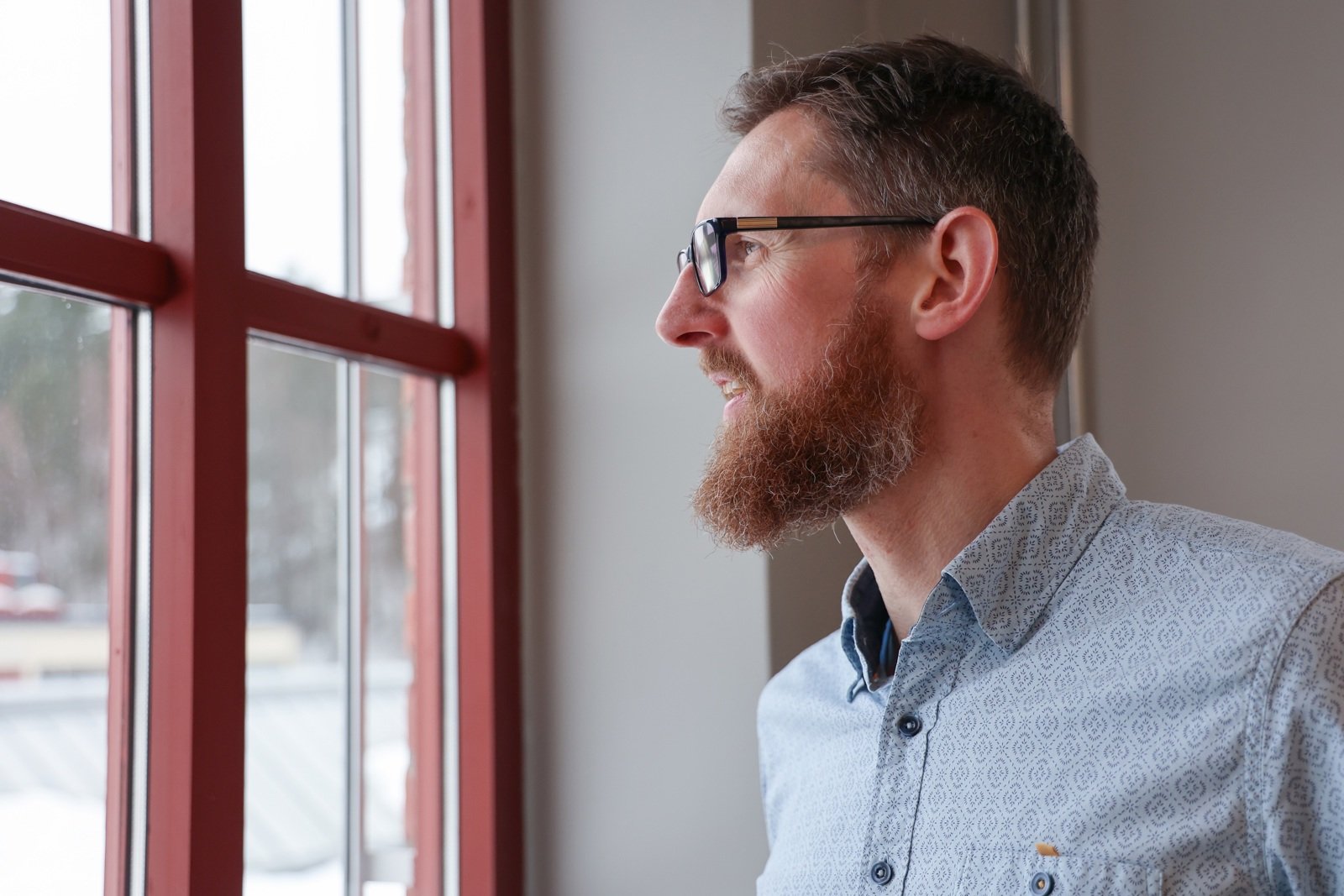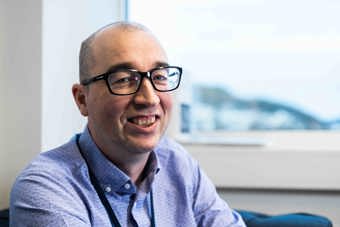Jon Anders has a hardware background and is educated in electronics and sound design. For several years he worked at the Norwegian National Broadcasting Company (NRK), with sound and development of production and distribution systems. He was involved in facilitating large productions such as the Norwegian finals for the Eurovision Song Contest, but he wants to make it clear that it wasn’t the music which made that job fun and interesting.
“What motivates me in my job, no matter what I do, are the technical challenges and that we have to work together to solve problems,” he says. “It's really about how things should play together, and defining which parts of the system should solve which tasks.”
There is little evidence left that could reveal that this 41-year-old is a former heavy metal guitarist who sported long hair and all-black clothes with band logos on his t-shirt.

“I cut my hair off when my daughter was born,” says Jon Anders. “But the beard had to stay, cause none of the children have ever seen me without it,” he says and laughs out loud.






